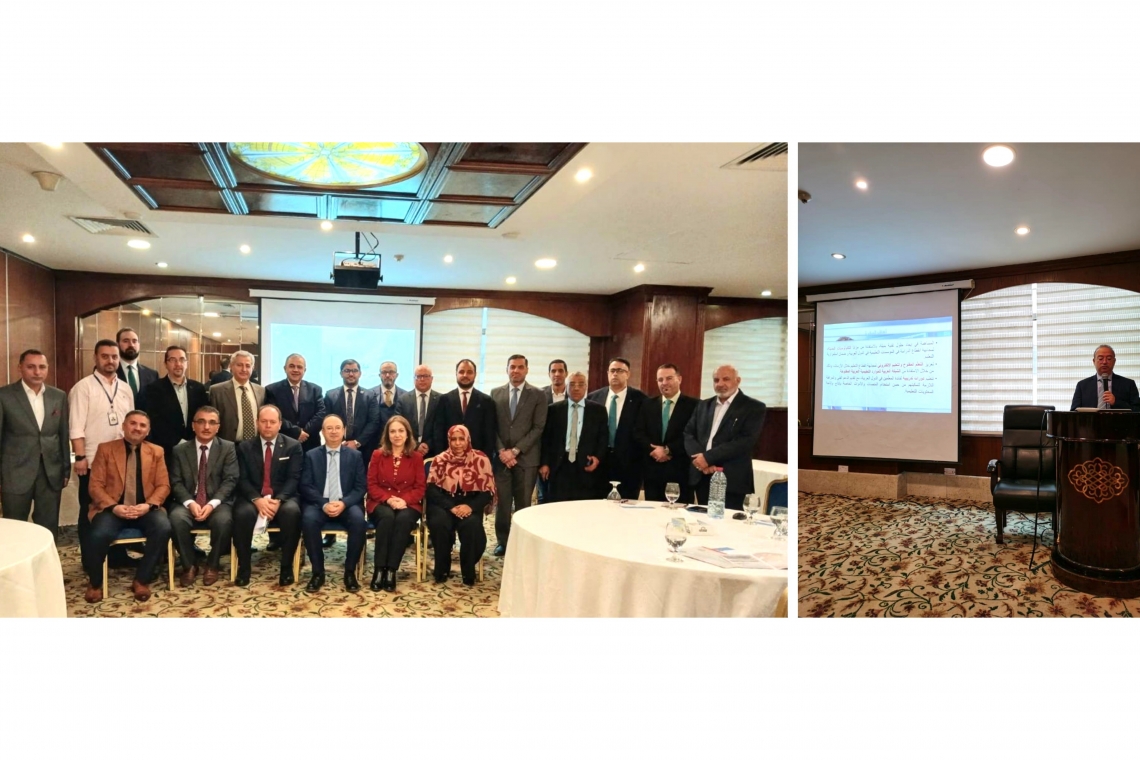The Arab League Educational, Cultural and Scientific Organization organized, in collaboration with the Jordanian National Commission for Education, Science and Culture, a high-level Symposium on “The Use of Modern Technology for Continuity of Work in Education, Culture, and Science during Crises and Disasters.” The Symposium was held in Amman, Jordan, on November 24-25, 2024, with the participation of relevant experts and specialists from Arab countries.
Addressing the Symposium, Dr. Mohamed Jemni, Director of ICT at ALECSO, conveyed the greetings of H.E. Dr. Mohamed Ould Amar, ALECSO Director-General, and wished all success for this event. He underlined the importance of boosting Arab and regional cooperation in addressing the challenges faced by the educational, cultural, and scientific sectors in times of crises and disasters.
The Symposium discussed the impact of crises and disasters on education, culture, and science in the Arab world. It highlighted possible strategies to maintain continuity of work in these sectors through the use of modern technologies, such as e-learning and artificial intelligence.
The Symposium took stock of the current situation in Arab countries, particularly those facing special circumstances, and underlined the need to strengthen capacities to leverage and localize modern technologies, narrow the technological gap among Arab countries, and promote the effective use of modern technologies in education and culture.
The Symposium featured several working sessions during which experts from various Arab countries shared their field experiences, with focus on technology-based innovations to overcome crises and disasters. ALECSO made a presentation on the development of e-learning and the effective use of digital resources during crises. Lebanon showcased its experience with e-learning during wars, focusing on the challenges and available opportunities. Other experiences were shared, including those of Jordan, Syria, Palestine, Iraq, Libya, Yemen, and Sudan. Emphasis was laid on the vital role of technology in maintaining the continuity of learning and ensuring the students' right to education, a key driver for development and stability.
The Symposium addressed the importance of harnessing modern technologies to support education in crisis-affected areas, with focus on the situation in Gaza which faces significant challenges due to the ongoing conditions. Participants recommended providing digital learning platforms to help maintain continuity of education for students during challenging circumstances, while also enhancing access to open educational resources and innovative technologies that enable distance learning.
Participants also called for providing the needed support for Gaza's technological infrastructure, including providing reliable internet connectivity and smart devices for students and teachers. They urged the launch of Arab and international initiatives to support education in Gaza, in order to ensure that every child has the right to quality and sustainable education, even in the most challenging circumstances.
The Symposium concluded with the presentation of recommendations that focused on strengthening national capacities to harness modern technologies in order to maintain continuity of work in the education, culture, and science sectors during crises and disasters. Participants also underlined the importance of developing unified Arab strategic plans to face crises, enhancing regional cooperation among Arab countries to share experiences and develop innovative technology-based solutions. They called for further investing in digital infrastructure, providing the necessary support to train human resources on the use of new technologies, and working on bridging the technological gap among Arab countries through sustainable joint projects.



